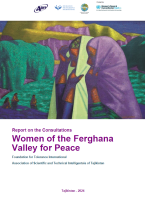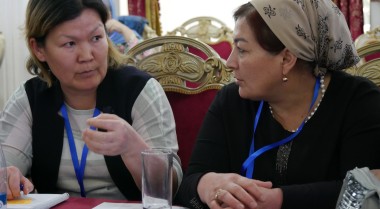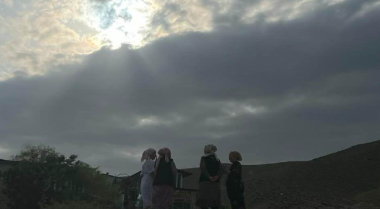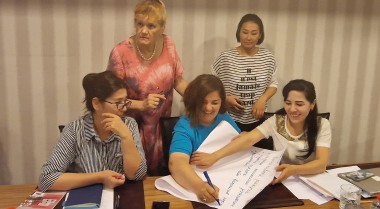
Unlocking the Potential for Sustainable Peace in the Ferghana Valley: Advancing Women's Role in Peace and Stability in Tajikistan
This country report highlights women's vital contributions to peacebuilding and conflict recovery in Tajikistan, particularly during the recent 2022 escalation of violence along the Tajik-Kyrgyz border. Women of Ferghana Valley played crucial roles within highly vulnerable communities, calling for peace, offering relief to refugees and border communities, and advocating for victims' rights. However, traditional gender norms significantly hinder women’s participation in public life and decision-making.
This report, prepared by the Association of Scientific and Technical Intelligentsia (ASTI) in partnership with the Foundation for Tolerance International (FTI), is grounded in consultations with 290 participants residing in communities of Tajikistan. This country report is part of a series that explores women’s roles in addressing local security challenges in Central Asia, including three country reports on Kyrgyzstan, Tajikistan, and Uzbekistan, along with a regional policy brief. Despite positive policy shifts by the Tajik government to engage women in public roles, cultural expectations continue to limit women's influence in household and community decision-making.
Border tensions and violence have deeply affected women, mainly due to restricted mobility and the psychological impact of recurring conflict. The burden on women has been exacerbated by men’s labour migration, leading women to assume greater responsibilities in their families and communities. Despite these challenges, there remains a critical gap in providing long-term psychosocial support to help women cope with the enduring psychological impacts.
Key recommendations to enhance women’s participation in peacebuilding and address the challenges they face include:
- Invest in women’s peacebuilding efforts and involvement in public life by launching awareness campaigns and capacity-building initiatives to transform harmful gender norms, especially for young wives, who often lack decision-making power within their households.
- Ensure meaningful inclusion of women in peacebuilding and decision-making through government efforts and donor-backed programmes that promote women's leadership in local dialogues and formal negotiations.
- Provide sustained gender-responsive psychosocial support for both women and men in border regions that address the distinct traumas experienced by each, such as increased access to female and male psychologists for tailored services.
By implementing these recommendations, the report calls on the Tajik government, international partners, and donors to foster a more inclusive peacebuilding environment, leveraging women’s roles to strengthen stability and resilience across Tajikistan’s border communities.
These reports are a product of the project Women of the Ferghana Valley Contribute to Conflict Resolution led by the Foundation for Tolerance International (FTI) in partnership with GPPAC and funded by the Rapid Response Window of the Women’s Peace and Humanitarian Fund. They serve as key resources for the project by providing evidence-based insights, documenting women’s unique challenges in conflict-affected regions, and offering actionable recommendations to strengthen women’s roles in peacebuilding and conflict recovery.



